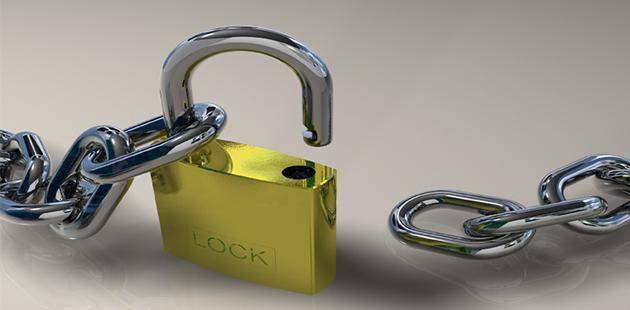Ever been puzzled about how to locate your property deed? Whether you’re a novice homeowner or have been living in your home for a while, it’s essential to know how to secure this vital document. Let’s demystify the process of acquiring your property deed and give you peace of mind.
Grasping the Significance of a Property Deed
Ownership of a home comes with the responsibility of handling several crucial documents, the property deed being one of them. This legal document acts as evidence of ownership and contains vital details about the property. It’s essential for homeowners to safeguard their investment and rights.
So, how do you secure your property deed? Here are some guidelines to help you acquire this vital document:
- Go to the county recorder’s office: The property deed is usually filed with the county recorder’s office where the property is situated. You can either visit the office physically or search online to request a copy of your deed.
- Engage a title company: If you’re uncertain about how to secure your property deed, you can engage a title company to assist you. They will conduct a title search and provide you with a copy of your deed.
- Consult with your mortgage lender: If you have a mortgage on your property, your lender might have a copy of your property deed. Contact them to request a copy for your records.
Procedure to Secure a Copy of Your Property Deed
To secure a copy of your property deed, you’ll need to follow several steps to ensure you have all the necessary documentation. First, reach out to your local county clerk’s office to inquire about the procedure of securing a copy of your property deed. They will be able to provide you with details on what information is required and any associated fees.
Next, compile any relevant information about your property, including the address, lot number, and any previous owners’ names. This will assist the county clerk’s office in locating the deed in their records more efficiently.
Once you have all the necessary information, you may need to complete a request form or submit a written request for a copy of your property deed. This can typically be done in person, by mail, or even online, depending on the county’s procedures.
After submitting your request, it may take some time for the county clerk’s office to process and provide you with a copy of your property deed. Be sure to follow up with them if you haven’t heard back within a reasonable timeframe. Remember, securing a copy of your property deed is a crucial step in ensuring you have proof of ownership of your property.
Strategies for Protecting Your Property Deed
Protecting your property deed is vital to ensure that you are the legitimate owner of your property. Here are some strategies to safeguard this important document:
- Keep in a Secure Location: Store your property deed in a secure location, such as a safe deposit box or a fireproof safe at home.
- Create Duplicates: Make copies of your deed and store them in different locations, such as with a trusted family member or friend.
- Engage a Title Company: Consider engaging a title company to keep a copy of your deed and handle any title transfers or legal matters.
Having a clear understanding of how to secure your property deed is vital for protecting your property rights.
| Method | Procedure |
|---|---|
| In Person | Visit the county clerk’s office with proper identification and request a copy of your property deed. |
| Online | Check if your county clerk’s office offers online deed retrieval services and follow the instructions provided. |
Seeking Legal Advice for Deed-related Issues
Are you unsure about how to secure your property deed? Consulting with legal professionals can help you navigate the complex process of deed-related issues. Whether you are purchasing a new property, transferring ownership, or dealing with a dispute over a deed, legal experts can provide the guidance and support you need.
When seeking help with your property deed, it’s important to look for experienced attorneys who specialize in real estate law. These professionals can review your deed, clarify any confusing language or terms, and ensure that all necessary legal requirements are met.
Legal professionals can also assist you with:
- Verifying the authenticity of the deed
- Resolving issues with property boundaries
- Updating or correcting information on the deed
- Protecting your property rights in case of disputes
| Service | Cost |
|---|---|
| Deed review | $200-$500 |
| Legal consultation | $100-$300 per hour |
In Conclusion
So, securing your property deed is a relatively straightforward process that can provide you with peace of mind and security in knowing that you are the legitimate owner of your home. By following the steps outlined in this article, you can confidently navigate the legal aspects of property ownership and ensure that you have all the necessary documentation to protect your investment. Remember, your property deed is more than just a piece of paper – it symbolizes your rights as a homeowner and should be kept in a secure place. Now that you know how to secure your property deed, you can rest easy knowing that your home is truly yours.

Unlocking the Mystery: Steps to Acquire Your House Deed
When you purchase a home, you become the proud owner of the property. However, the physical document that proves your ownership is known as a house deed. If you’re unsure how to acquire your house deed, don’t worry! We’ve outlined the steps you need to take in order to unlock this mystery.
Step 1: Contact Your County Recorder’s Office
The first step in acquiring your house deed is to contact your county recorder’s office. They are responsible for maintaining property records for all homes in the area. Reach out to them and inquire about the process for obtaining a copy of your house deed.
Step 2: Provide Proof of Ownership
Once you’ve contacted the county recorder’s office, you will likely need to provide proof of ownership. This may include documents such as your mortgage statement, property tax bill, or a copy of your purchase agreement. Make sure to have these documents readily available to expedite the process.
Step 3: Pay the Required Fees
Obtaining a copy of your house deed may involve certain fees. These fees can vary depending on the county and the specific document you are requesting. Be prepared to pay these fees in order to receive your house deed.
Step 4: Review and Verify the Deed
Once you have received a copy of your house deed, take the time to review it carefully. Verify that all the information is accurate, including the property description, your name as the owner, and any other relevant details. If you notice any discrepancies, be sure to address them with the county recorder’s office.
Step 5: Store the Deed in a Safe Place
After acquiring your house deed, it’s important to store it in a safe place. Consider keeping it in a fireproof safe or a safety deposit box at your bank. It’s crucial to have easy access to this document in case you need to reference it in the future.
Benefits and Practical Tips
- Having a copy of your house deed provides proof of ownership and can be helpful in legal matters.
- Make sure to update your house deed if there are any changes to your ownership status, such as marriage or divorce.
- Consider creating digital copies of your house deed for added security and easy access.
Case Studies
Here are some real-life examples of individuals who successfully acquired their house deeds:
| Name | Location | Outcome |
|---|---|---|
| John Smith | New York City | Received a certified copy of his house deed within 2 weeks of submitting the request. |
| Emily Johnson | Los Angeles | Discovered an error in her house deed and was able to rectify it with the county recorder’s office. |
Firsthand Experience
Acquiring your house deed may seem like a daunting task, but with the right information and preparation, it can be a straightforward process. Follow the steps outlined above and reach out to your county recorder’s office for assistance. Remember to keep your house deed in a secure location and stay proactive in managing your property ownership.


